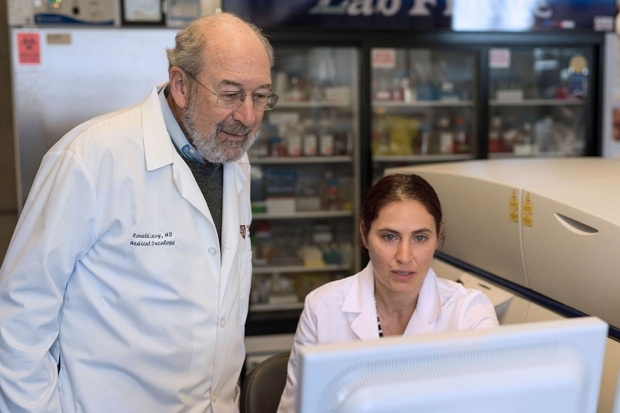
A cancer vaccine that showed 97 percent success in removing tumors in mice has now moved to the next stage of human trials and the Stanford centre that developed it is seeking volunteers.
Though it is not exactly a vaccine by conventional term to provide lasting immunity in the body, it employs a vaccine-like injection to inject two immune stimulators that activate the immune system's T cells to eliminate tumors throughout the body.
The vaccine was developed as a part of immunotherapy that makes use of the body's immune system to attack tumors and fight cancer. "This is in its early days and we are still looking for safety and looking to make this as good as it can be," said Ronald Levy, a Stanford oncology professor and the lead author of the study. "Getting the immune system to fight cancer is one of the most recent developments in cancer," he added.
The study, undertaken by Levy, along with Stanford instructor of medicine Idit Sagiv-Barfi, was published recently in the journal Science Translational Medicine.
The treatment entails a low dose of radiation plus two rounds of the injected agents, and it involves no chemotherapy. However, it never works on all types of cancer and hence the Stanford team is looking for people with low-grade lymphoma. About 35 subjects are required for the human clinical trial.
The trial will include two drugs developed by two different companies and have been proven safe for people, said Levy. Some of the known side-effects include fever and soreness at the area where the injection was given but causes no vomiting, he noted.
After human trials, the FDA approval will be sought and it might take a year or two, he said. The vaccine approach is unique but it makes use of already FDA-approved cancer drug for the injection meant for melanoma skin cancer, he explained.
The FDA, in 2017, approved a cell therapy to treat leukemia and lymphoma known as CAR-T, where a patient's immune cells are taken from the body, genetically altered and reintroduced to attack the tumor cells.
But it is half-a-million dollar therapy with side-effects that include permanent loss of B cells, which are responsible for producing antibodies. Its success rate was 60 percent, says Michelle Hermiston of UCSF, California.








